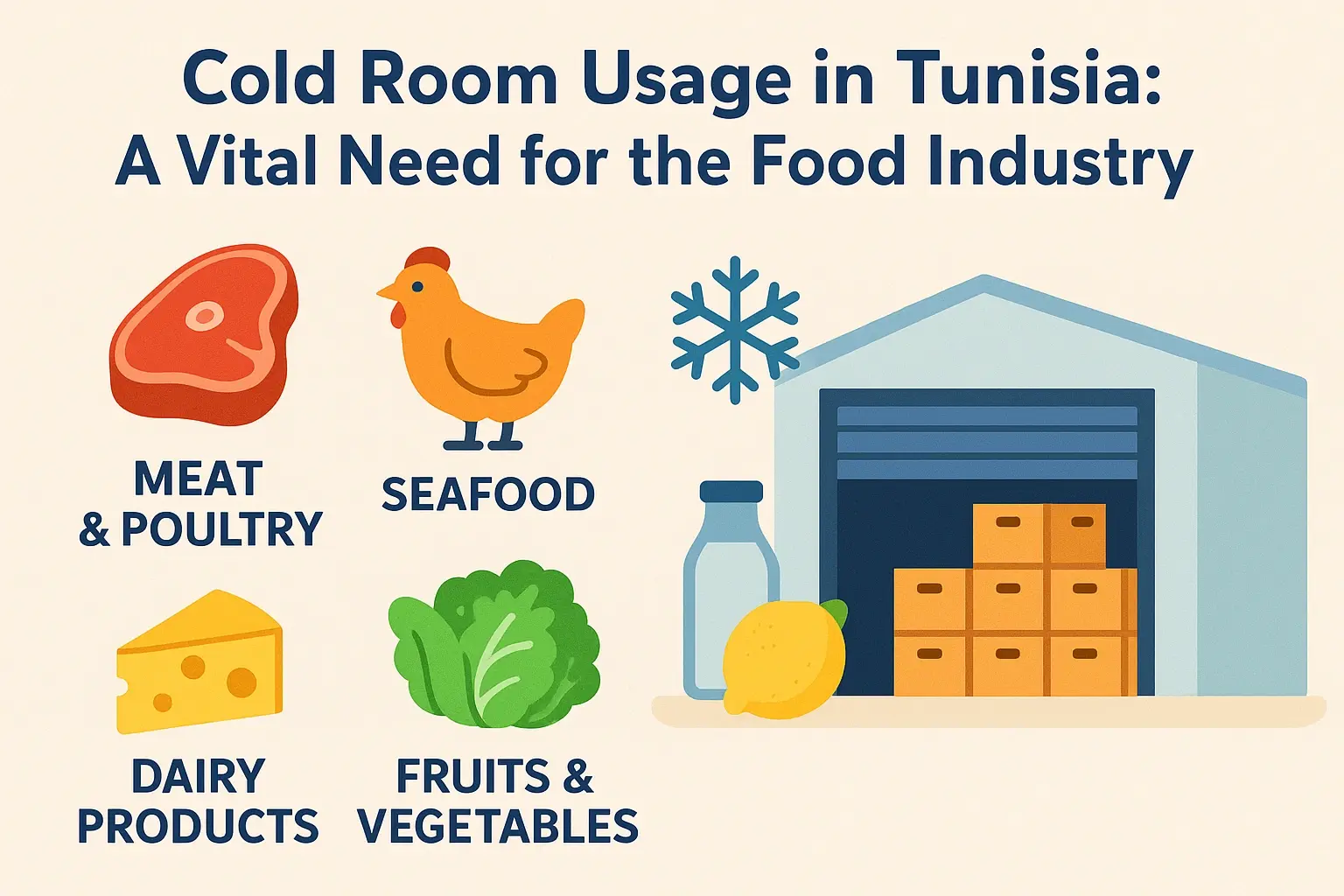Tunisia, with its Mediterranean climate and thriving agricultural economy, is a country where cold storage rooms play an essential role in preserving food quality and reducing post-harvest losses. As temperatures rise, especially during the long summer season, the demand for temperature-controlled storage solutions increases significantly across various sectors.
Why Cold Rooms Are Essential in Tunisia?
Temperature Fluctuations: Tunisia experiences high temperatures in inland and southern regions, making refrigerated storage critical for perishable goods.
Export-Oriented Agriculture: Tunisia exports large volumes of olive oil, citrus fruits, dates, and seafood. Maintaining cold chain integrity is essential for preserving quality and complying with international food safety standards.
Food Waste Reduction: Cold rooms help reduce post-harvest losses in the supply chain, ensuring longer shelf life and product freshness.
Key Food Sectors That Rely on Cold Rooms
1. Meat & Poultry
Tunisia has a strong domestic consumption of red meat, poultry, and processed meat products. Cold rooms are vital for slaughterhouses, butchers, and meat processing plants to prevent spoilage and bacterial growth.
2. Seafood
With its long Mediterranean coastline, Tunisia's fishing industry requires robust cold storage facilities at ports and fish markets to keep products fresh from catch to consumer.
3. Dairy Products
Milk, cheese, and yogurt are highly perishable and require constant refrigeration. Dairy factories and distribution companies use cold rooms to maintain quality and prevent microbial contamination.
4. Fruits & Vegetables
Cold storage helps maintain freshness and slow down ripening. Products like citrus fruits, dates, tomatoes, and leafy greens benefit greatly from controlled environments, especially for export purposes.
5. Frozen & Processed Foods
With urbanization and lifestyle changes, demand for frozen meals, bakery products, and pre-packaged goods is rising. Cold rooms are used to store these items in supermarkets and food processing plants.
Custom Cold Storage Solutions in Tunisia
Each food sector has different cooling needs. Therefore, modular cold rooms, walk-in freezers, and container-type cold storage units are increasingly popular. These systems offer flexibility, energy efficiency, and can be tailored for:
Low-temperature freezing (–20°C to –40°C)
Medium cooling (+2°C to +8°C)
Humidity-controlled environments for fruits and vegetables
Growing Demand and Investment Opportunities
Tunisia’s government encourages investment in food safety, agri-tech, and logistics infrastructure. Cold storage solutions are not only necessary for local producers but also a growing opportunity for international investors in the refrigeration industry.
Whether it's for farmers, food exporters, retailers, or processors, cold rooms are no longer optional. They are a necessity in Tunisia's food value chain. Companies that invest in reliable and energy-efficient cold storage systems are better positioned to meet both domestic and global market standards.

